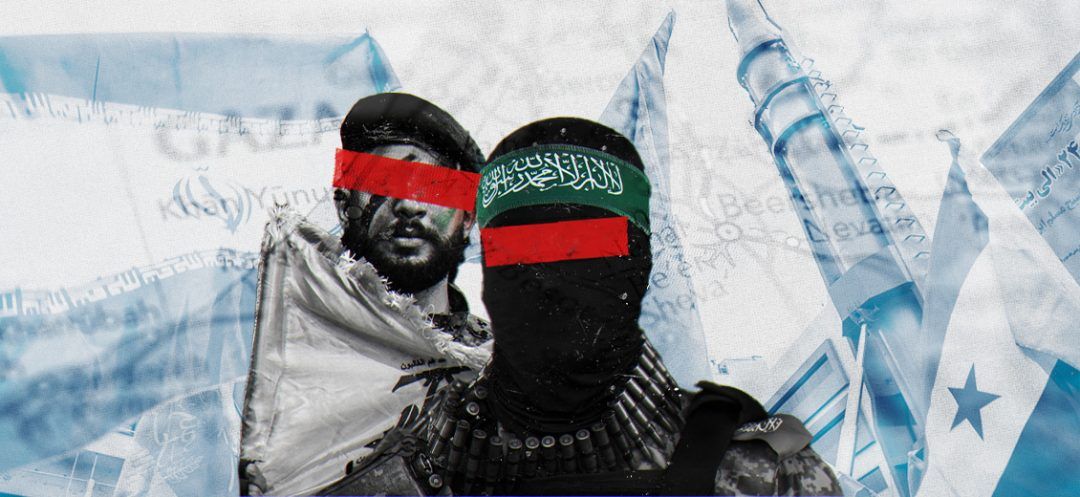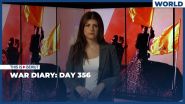- Home
- War in the Middle East
- Is There a Chance for Peace?

The latest developments in the Near East are of bad omen and the chances of stabilization are improbable in spite of the active diplomatic mediations. As long as the Iranian regime is in control of the political landscape, the chances of serious political evolutions are of a limited scope, let alone uncertain. The uncanny neutralization of the Sunnite middle ground and the tight political controls imposed by Iran on the political dynamics within its various geopolitical realms largely account for the current stalemate and its diffuse reverberations. Israel is practically the only exception that questions the hermetic controls closing over Iraq, Syria, Lebanon, Gaza, and the Palestinian Territories.
The Iranian imperial strategy is checkmated by Israel which seems to challenge its questionable predicates based on instigating civil wars, expanding the realm of political and security wastelands, undermining sovereignty and territorial self determination, and hobbling reformist agendas. One wonders whether this political course is likely to change without upending the existing power equation? What would be the chances of diplomacy when a totalitarian regime is unable to come to terms with its limitations and lives under the spell of its unhinged imperial drive? The conflict between Israel and Iran is not accidental and is of magnitude, since the whole geostrategic landscape is at stake.
The chances of diplomacy in Gaza are still thwarted by ideological irredentism, moral callousness and total indifference to the tragic plight and the untold suffering of the Palestinian civilian population caused by the human shield strategy instrumented by Hamas. When the politicization of victimization reaches such heights of moral insensitivity and depravity, one wonders about the options and the likely outcomes? Israelis, on their side, are confronted with the existential threats brutally unveiled during the October 7th 2023 massacres, the strategic equivocations of Gaza and its future governance, the fate of the remaining hostages and the awkward issues connecting the current mediations to the projected truce and the likelihood of an overall political negotiation, at a time when the prospects of the two state solution is at nadir and rejected at both ends of the spectrum.
The same political and existential concerns seem to hover over the Lebanese dossier in a deeply fractured country where the erstwhile Palestinian militancy, Third World Leftism and Cold War politics are, nowadays, relayed by domestic Shiite militancy and the expansionist strategy piloted by Iran. The overt subversion agenda advocated by Hezbollah is challenging the Lebanese national narrative, the country’s legitimacy and systemic equilibriums and leveraging its territories into platforms of subversion radiating throughout the near-eastern geopolitics.
The diplomatic mediations are running against congeries of obstacles ranging between the Shiite domination politics, the fragmented political landscape, the socio-economic unraveling and the contending power politics. Hezbollah’s strategy is based on safeguarding its controls over political institutions, expanding its extraterritoriality politically and militarily, and widening the scope of the Shiite imperial strategy regionwide. Its overall negotiating tactic is to outmaneuver the demilitarization scenarios in south Lebanon, protect its military status and prerogatives and impose itself as an ineludible power player.
This cursory review helps us visualize the looming obstacles and the inherent limits of diplomatic mediations. The Iranian regime is hellbent on buttressing its flagging legitimacy and problematic civil peace, controversial imperial inroads, nuclear military plans and power projections in a dissipating Middle Eastern geopolitics. The variety of political agendas is annexed and strictly aligned to the diktats and the priorities of the imperial policy. To whichever extent, the current diplomatic efforts are able to sift through the multilayered issues, disentangle the overlapping dynamics and engage in an outright stabilization diplomacy is a moot point that cannot be readily answered. Nonetheless, the overall picture is pessimistic, since the jumble of political soteriology (Mahdism), Islamic totalitarianism and their imperial correlates, is unlikely to be addressed unless the whole political, strategic and ideological configuration unravels and is ultimately defeated. The political and diplomatic interims keep their pertinence and usefulness as long as they do not hedge the critical nature of the issues at hand.
Read more



Comments